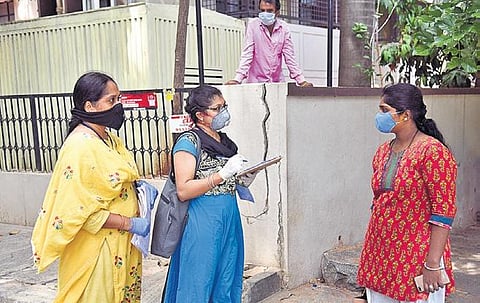

BENGALURU: With SARI and ILI cases continuing to prove tricky for the health department in containing Covid-19 cases, senior epidemiologists in the State are saying that the sudden rise in the number of such cases in districts now is because they were not detected earlier and that it was worrying. “Detecting SARI (Severe Acute Respiratory Infection) cases shows that the districts are implementing the surveillance well. However, the increase in such cases now shows that the districts did not detect these cases earlier and have therefore remained green for a long time.
That’s why these colours don’t mean anything,” explained Dr Giridhara R Babu, epidemiologist and member of ICMR. Experts fear that the spread to community will not be known if the SARI and ILI (Influenza-like Illness) cases are not identified. A senior epidemiologist who did not want to be named said, “The ICMR study on the SARI and ILI cases began late. The trends observed were also late. Now, three districts from Karnataka — in Bengaluru Rural, Chitradurga and Kalabuargi -- figure in the ICMR study.” Delay or under-reporting will also lead to difficulties in contact tracing, opined the experts.
Proving this is the daily statistics released by the State Covid-19 War room which shows there are 70 cases of ILI and SARI which are still under investigation. This means that their travel history or contact history has not yet been traced. This number makes it about 8 per cent of the total cases reported. Karnataka has to up its act and start detecting the maximum number of SARI cases, said Dr Giridhara Babu.
The confusion in not identifying such cases has also led to closure of almost six to seven hospitals in the State, fear among non-Covid-designated hospitals to attend to SARI cases, and the use of PPE kits by health workers attending to SARI cases in Covid hospitals, he said. However, ICMR on March 20 had expanded testing to SARI and ILI patients. Dr G Gururaj, senior epidemiologist, NIMHANS, said, “SARI and ILI, which have got similar symptoms of Covid-l9, and are very common should be screened at the initial stages so that morbidity and mortality due to Covid- 19 can be arrested in the community.’’
47 SARI cases under investigation
23 ILI cases under investigation